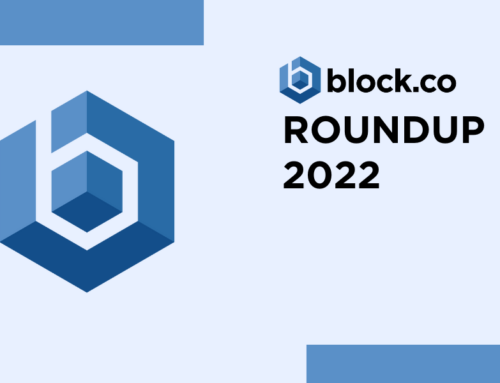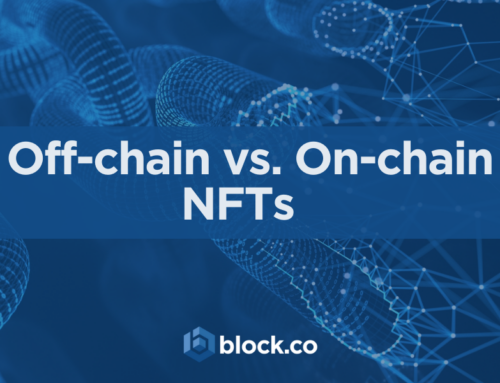Blockchain Use Cases & Cost Savings for Academic Institutions

As companies look at creative ways to be more competitive while being conscious of costs, blockchain has proven over time to be a great inclusion within their investment umbrella.
Reduction of long-standing bureaucratic procedures; cut of headcounts needed to manage automated processes; reconciliation efficiencies; the end of paper documents; these are only a few of the benefits that organizations worldwide are considering before upgrading to the blockchain.
A survey by Deloitte in 2018 revealed that 39% of the organizations interviewed would invest $5 million or more in blockchain technology in the coming year. Also, 16% believed that lower costs are the most significant advantage of blockchain over existing systems when thinking of their specific industry.
Distributed ledger technology could reduce banks’ infrastructure costs by between $15-20 billion per annum by 2022, a report issued in 2015 by Santander and other financial partners reveals.
If these figures have surprised you, you are in good company. Yet, it is no secret that financial institutions will be the most likely to gain huge benefits for implementing blockchain within their systems. One of the major promises of blockchain technology is, indeed, to help reduce costs by removing the need for third parties to manage transactions and keep records.
While it’s important for companies and institutions to upgrade their technology resources as part of an investment strategy, specifically how does blockchain help reduce costs?
We can think of the blockchain as a natural development of the Internet that already helped us save time and money by virtue of a new efficient and fast system that brought us e-commerce and faster means of communication.
Internet systems are not always reliable, though. They can be counterfeited, manipulated, and easily hacked. This is where blockchain technology appears to be its inevitable progression: it offers reliability, transparency, and security.
In supply chains, for instance, the Internet of Things and Blockchain are a match made in heaven. The main problem in the traditional process is full transparency and visibility of the product location at any time. IoT resolves the issue. It offers a network of connected machines, vehicles, and inventory that provides real-time data on product traceability across the whole supply chain. “You no longer need to work around the inefficiencies and delays of manual checking, phone calls, faxes, or emails. Instead, you get real-time status and trend information directly from the supply chain”– Rob O’Byrne, Logistics Bureau
All this connected information, though, is stored within a central database that limits accessibility and trust. Adding the open blockchain technology to the system brings the benefit of a shared, distributed ledger with verifiable event logs including time-stamped data of the process that shapes a supply chain. No time is wasted and the network participants have access to the records at any time.
Cost savings for supply chains that embrace this kind of innovation stand in the range of an annual 0.8% which, for a company that trades billions, might still represent a good starting point. This figure is very narrow considering that the potential is much higher if we take into the equation other savings that may occur outside of the logistics process itself, as discussed in the interesting article: “Pairing Blockchain with IoT to Cut Supply Chain Costs”
Cost Saving For Academic Institutions
While the Internet saved us massively on paper costs and printing, most academic institutions are still spending enormous amounts on storing data and records. The loss, damage, and falsification of documents in education is quite a common basis for litigation, which results in financial costs and wasted time. There are plenty of examples of court litigation globally over fake documentation provided to access higher education, apply for a job, or even prove identity.
In India, 4,704 employees and teachers are in fake degree row while in the UK the Guardian reported on records of 3,000 medics to be reviewed after it emerged that a con-woman practiced for 22 years on false papers.
An interesting and comprehensive report by the European Union in 2017, Blockchain in Education, explains how significant money could be saved in the management, storage, and provision of institutional data and overall highlights the benefits of using the technology as a decentralized, distributed ledger with no central power involved.
The report mentions the University of Nicosia as the pioneer institution that introduced blockchain in the Academic world and its Blockchain Research Centre, the Institute For the Future, is positioned as a world-class hub on emerging technologies.
They have offered credentials on the blockchain since 2014 and now through its commercially focused initiative Block.co, UNIC is making its e-certification verification procedure available to external academic institutions and also other sectors.
Block.co provides a decentralized solution based on open-source technology making it secure, efficient, and easy to use. This is because our vPDFs are self-verifiable & self-contained consisting of the blockchain proof, the metadata as well as the presentation of the file.
Even if you decide to stop using our product, we quarantine that your vPDFs will be working fine. In addition to this, even in the case that Block.co does not exist anymore as an entity, you will be able to visit or deploy the open-source validating tool at any point in time, and continue using the self-verifiable and self-contained digital documents.
Being that blockchain technology is still in the early stages of adoption and implementation, the less techie person might find it challenging. Block.co can help provide the necessary technical expertise to follow the whole process from creation to publication on the blockchain where the document will be safely stored for life.
If your brand is ready to take the step into web 3.0 and NFT marketing, to optimize engagement with your audience in innovative ways, then click the button below to get your Free Trial, a limited number of Free NFTs, and a Free Consultation call from our team!
For more info, contact Block.co directly or email at enquiries@block.co.
Tel +357 70007828
Get the latest from Block.co, like and follow us on social media:







